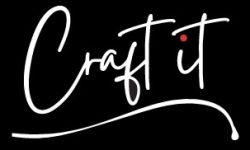The hunt ran from May all the way to September: On the 7th of May, Antony ‘Anto NeoSoul’ Mwangi released his debut album to a thirsty intimate crowd that had gathered at the Carnivore Grounds. The album title – Star Born – was befitting to the magnificence that unfolded before the crowd on that warm Wednesday evening in early May.
I waited for the hype of the release to die down before getting a hold of the album. But a month later, it wasn’t available on supermarket shelves or music stores across Nairobi. A limited release, eh? How classy. I contacted Anto through his webpage asking him whether the album was available for download online. He said nothing for 12 weeks. Mmh. The response that hit my email mid-August directed me to iTunes. Such a dead end, I thought.
I wandered about for another six weeks before I found a stash of music on wabeeh.com. Wabeeh.com is a pay-per-track download site exclusive to African artists. It’s a paltry 40bob to buy a track. I went gungho and downloaded this, and four other albums.
It was the 22nd of September.
The reason I was so intent on getting this album is because I had already encountered Anto. I saw Anto in performance once last year. He was the backup vocals at one of Ricky Na Marafiki’s monthly afro jazz gigs. He is cheeky chap with a vibrant spirit. Shorty. Skinny. Prominent forehead. He has a small ‘o’ for a mouth.
Anto gave a memorable performance that night. I was hooked.
After that Tuesday, I started to see Anto more and more often in my office building. Radio show host (we’ll get to it in a bit). Anto is a sharp dresser – what with his made-to-measure pants and jackets. Scarves thrown in an ordered disorder around his neck. Sparing accessories. Colours coordinated to a fault. Nothing about his wardrobe pieces is left to chance, I tell you. Then there’s that hair, that static mop of uncombed hair. Jesus. I have been tempted on more than one occasion to reach out and grab a chunk of it. What saved us both (the embarrassment) is that the elevator doors chimed open on my floor before his did. Hehhe.
In many ways, these encounters were a prelude to his album.
*
Star Born is 16 tracks long, including its two interludes. It runs for 54 minutes. Only one guest artist is featured, the rhyming Wangechi. The album is produced by Pine Creek Records; it’s the tenth to be produced under the label. Sound quality is good.
On the 16 tracks, Anto sings about the fluff of love, and the personal woes of being a lover. And of being in love. It’s breezy and light stuff, pleasant to the ear.
He sings mostly in English and sheng, and his vernacular kuyo.
Anto sells the album genre as world neo-soul. I don’t know what the hell ‘world neo-soul’ means but I disagree with it anyway – the only track on the album which has a hint of the world beat is Afrika, because of the instruments and tempo. All others are neo-soul. The two radio releases – Paid my Dues and Chips Funga –represent the album. Listen to the two and you have an idea of the its genre: it is sonically and lyrically neo-soul.
Yet there is a twist to this version of neo-soul.
Let me break it down to you: Neo-soul isn’t a genre indigenous to our local music scene. That’s why artists like Atemi base their localized version on the self-proclaimed pioneers of neo-soul like akina Floetry and Jill Scott. They borrow heavily from these international artists. You can randomize such two artists – the local Atemi’s and the non-local Jill Scott’s – on your neo-soul playlist, and you’d only realize it’s a local artist because they sing in sheng or vernacular.
But Anto has made some subtle yet distinctive tweaks to his music to create his own local version. His is a new sound: He took what the Atemi’s localized and localized it further to create his own version of neo-soul.
A version he calls world neo-soul. I call it Anto’s neo-soul.
Neat, eh?
The real power of Anto’s neo-soul and of this album is in his vocals. Everything about his music falls to its backdrop, everything curves itself around it – his own writing in the lyrics, the instruments, the backup vocals, the album arrangement. Like a magician, his vocals are the wand with which he casts his magic upon the album. And upon us, his listeners.
Anto’s voice is a tenor blend of sultry and raspy. It seems neither practised nor refined. It is loosely controlled, imperfect. And it is this imperfection that gives it its distinct edge. Listening to the album, one gets the feeling he isn’t trying too hard to hit those high notes. He strains where he needs to, playfully so. I hear him about to fall over the cliff of a crescendo but he quickly catches himself before the balance is lost. It’s brilliant.
The depth and breadth of Anto’s vocals are unbounded. It’s a thin line for him between his talking voice and his singing voice. Sometimes his talking voice is his singing voice. Which means he has plenty of room to play with in his future albums and live performances. Anto can nail any gig he takes a stab at – spoken word, musical comedy, backing vocals, acapella. Even rap.
Speaking of his talking voice and his singing voice, I believe radio is killing Anto’s spirit. Anto runs the late show on Easy FM with Ciru Muriuki on weeknights from 10PM. The show is flat. Why? Because radio is killing his spirit. Why? Because Anto isn’t a talking head who is boxed behind our stereos, he is an artist. An artist whose best punches come from the snappy, sassy lines he writes then performs in wide open spaces. He is in his element then. Not in the scripted conversations he is handed to read on national radio.
One failing of the album is in the sequencing of the tracks. After Afrika – my least favourite track on the album – tempos and textures are carelessly ordered. I was thrown around for a couple of tracks, uncertain of what would come next. Some listeners would appreciate when artists pull such surprises. I didn’t. Not here. Not for this artist. And surely not for this album. What saved things from going downhill from this to the out track was the second interlude, Renaissance. It was well placed buffer. And I sighed a relief when the album regained its earlier sequence after this.
The other failing is that the tracks are far too short. An average of three minutes, 39 seconds per track is relatively short for a neo-soul album – neo-soul is music made to soothe you, seduce you, draw you into its magic then embrace you. You with all the emotions you have exposed from obediently diving into the music. The artist surely needs time to do this.
But with this album, there was barely time to close my eyes and settle into a track before it frustratingly came to an end: At six minutes 34 seconds, Horera is the longest running track, Qwerty Love is the shortest at three minutes eight.
I remember I had a particularly terrible day last Wednesday, and I turned to the album to ease the burden for me. It didn’t work – the track endings came too soon, too urgently, asked me wrap up and move on too quickly. Chill bana. I could blame this on the terrible day – I know I could – but even on a good day, a slow day, the rush of the album is still evident.
I wanted more damn it, more of Anto’s raspy vocals: I wanted more of the forewarning on Utanikumbuka. I wanted more of the sky-high ambition on Pepea. I wanted more of the upbeat tempo on Turnt Up. I wanted more of the confessions on Addicted. I wanted more of the lover who’s begging on his knees on Nipe Asali. Recall he has a knack for just throwing in phrases in to create a tune? Yeah. He does this on the album, too. And I wanted more of this.
I wanted – most especially – more of the schmaltz and overconfidence on my favourite track in the album, Hujawahi. Everything good about this album and everything not-so-good about it came together in this track. Hujawahi, this is the jewel in the album’s crown.
I know I wanted an entire other album when the final chords struck on the out track, Qwerty Love.
*
I enjoyed listening to this album. No doubt. The hunt and wait was worth it. If anything, it made me even more appreciative listening to it then writing this.
I am not one to compare a person to another. Let alone compare one artist to another. People are best compared to themselves. So it was with a little guilt that I found myself comparing Anto NeoSoul to the artist Maxwell. Maxwell. Oh Maxwell. I hold Maxwell in high regard. Do you see traces of one in the other? Especially in that angry hair? I do.
Well, while I wait for Anto’s sophomore album, and until I find his local equivalent, I will do the harmless thing and place him next to Maxwell. Not compare him anymore. Not ask him to be like Maxwell. Not wish he matures to be Maxwell. But let him stand right next.
I know which name I will remember, anyway.
0


Lovely review fra
Thanks, JB Ali.
Wow, I have never seen an album reviewed this way! I shall definitely get it, I have watched Antoneosoul perform many times and he definitely sounds like you described him. He is full of energy.
Kabisa.
I have not read anything this deep in my life. I am speechless. I apologize for the lack of response when you inquired about the album but I am oh so glad you have the album now. I would love to deliver an autographed album…soon. Please share your contacts. Bless you.
No sweat. I will find you.
Thanks for stopping by.